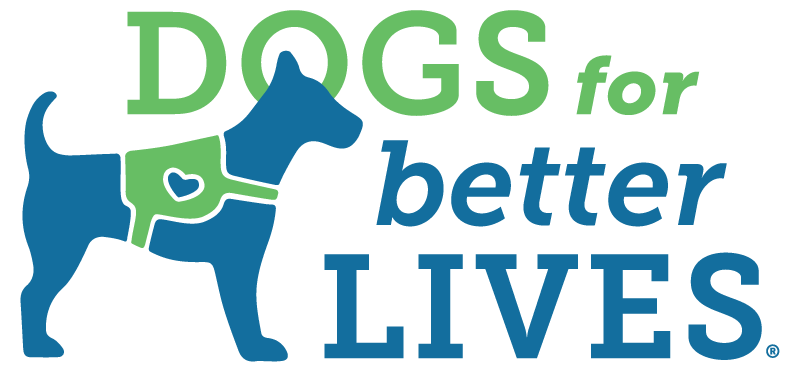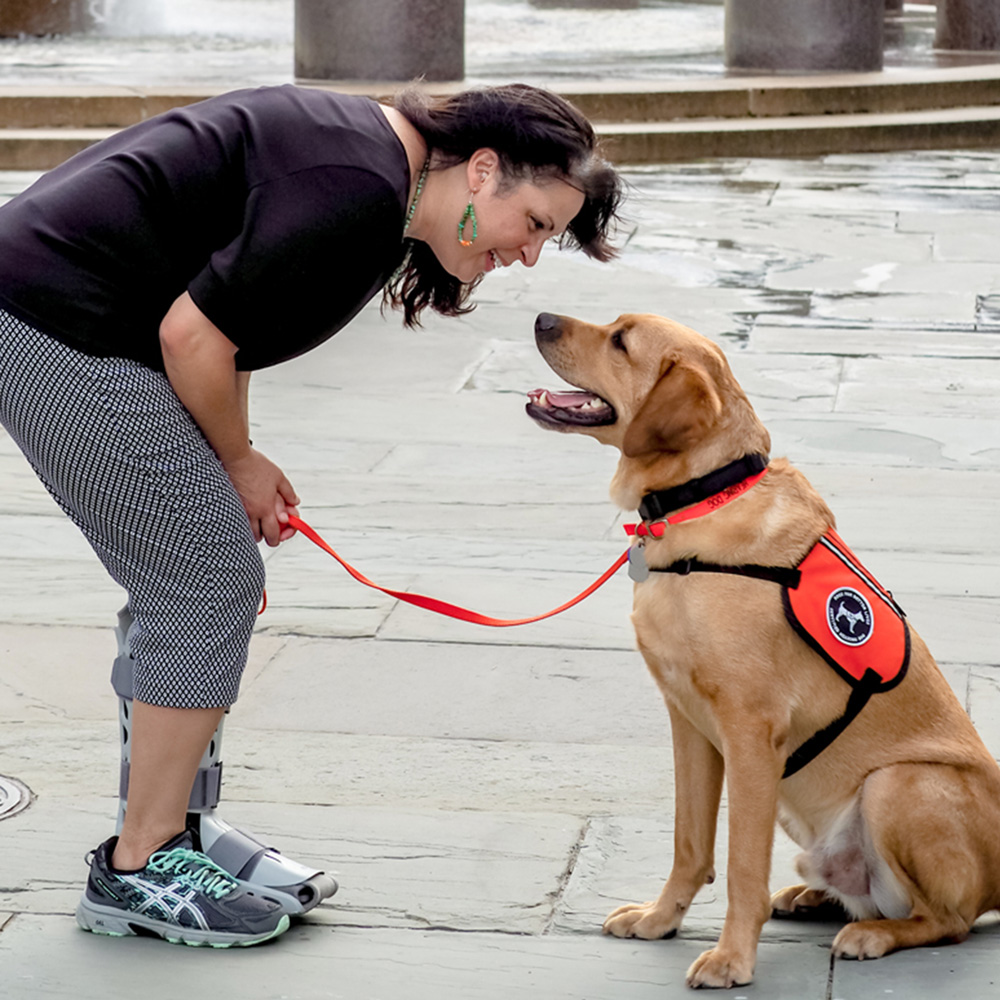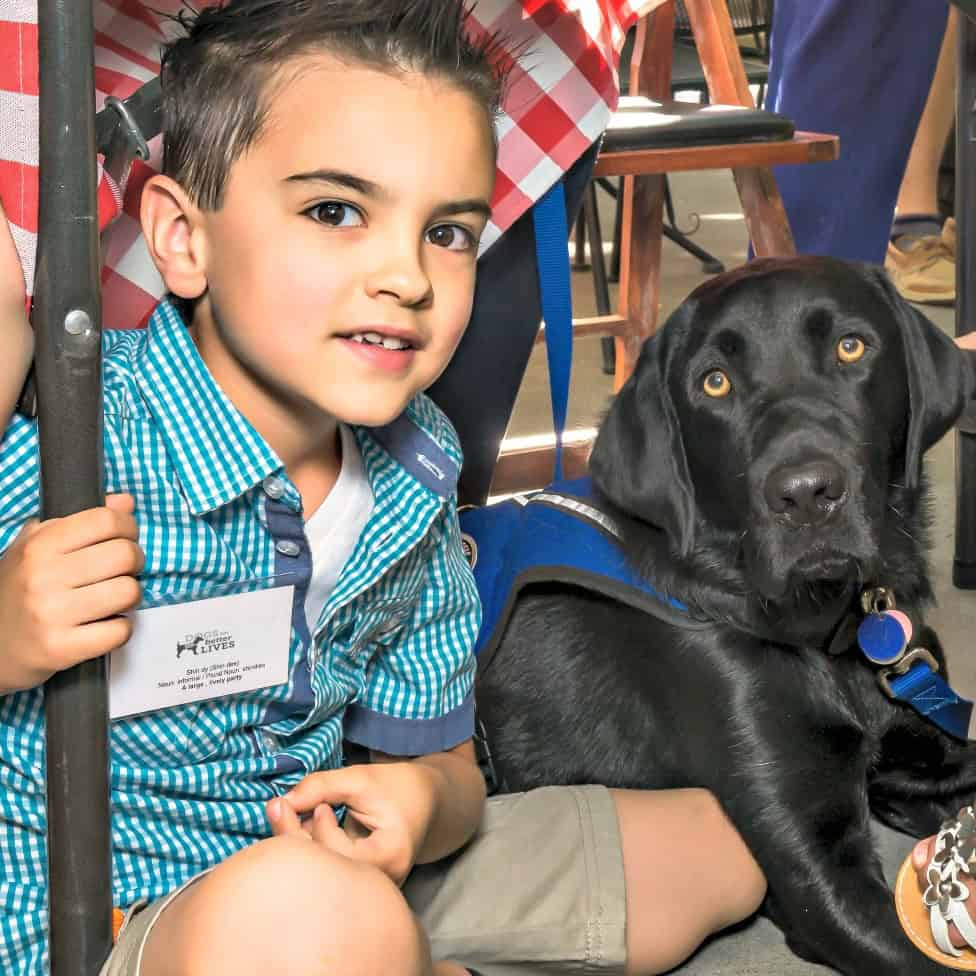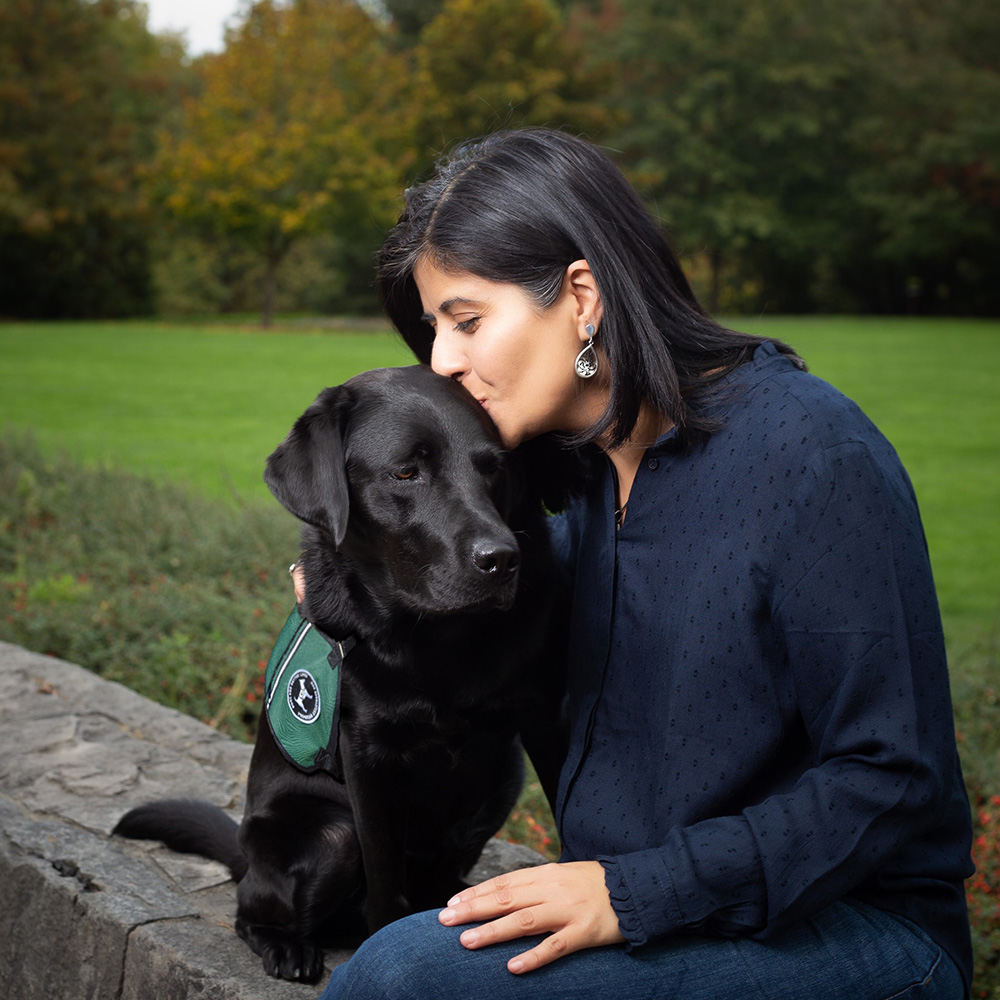Dogs for Better Lives (DBL) has a lifetime commitment to all dogs that come through our doors. These include all our trained Service Dogs and dogs that aren’t necessarily able to complete training, aka Career Change dogs. We have maintained this commitment throughout the life of the organization and is part of our mission statement. Laura, a DBL Field Representative, outlines below some of the ways we put this commitment into action each and every day.
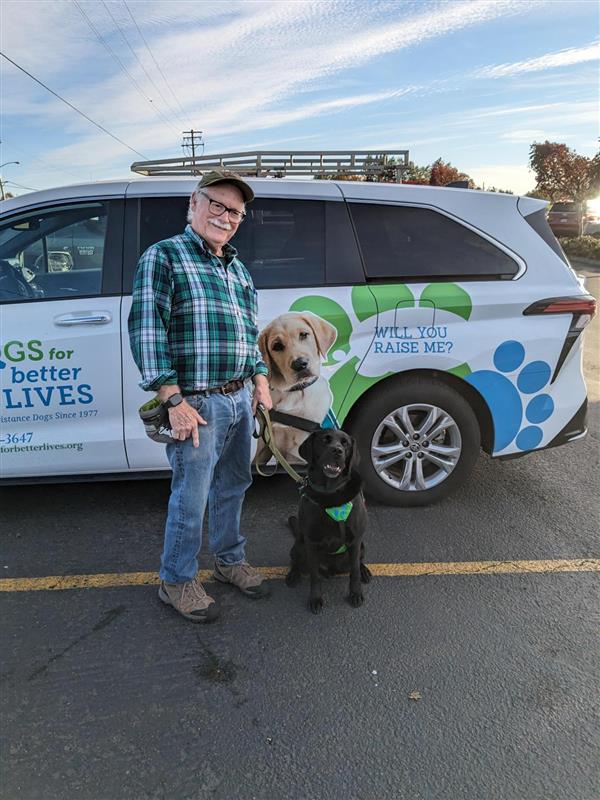
Client Chris with Certified Hearing Dog Norton at their recent follow-up visit
Service Dog Team Support
We follow ADI (Assistance Dogs International) standards for training and follow up with our Service Dog Teams. For the first year after placement, we require clients to send monthly progress report. We hold phone/video chats once monthly for the first six months after placement and receive annual update and vet reports for the working life of the team. Also, we do a follow up visit at important milestones for the team: one, three, and seven years post placement.
This follow-up schedule ensures DBL will have updates on the progress of the team in the first year, annually for the working life of the team, and follow up visits at the important milestones of the team.
Follow-up Visits
What happens at follow-up visits with our clients varies depending on the type of Service Dog they have. In all Service Dog visits, we check and verify the dog’s health and weight and observe their behavior and obedience skills. Any problems or issues are discussed with attempts to resolve.
If the dog is certified for public access, an ADI public access test is performed. Home Hearing Dogs and Facility Dogs do not have public access, but follow ups may include a visit to a pet friendly place to observe their behavior. For Facility Dog teams, a work visit may be included.
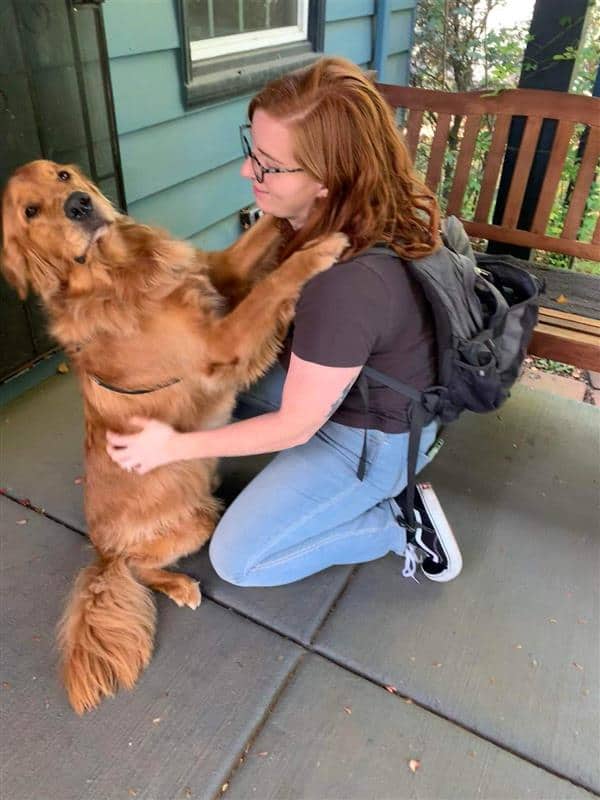
Facility Dog Lander greets DBL Field Representative Emily with a big hug at his 1-year follow-up visit.
We also observe the core tasks for the Service Dog to ensure they are still reliably performing the tasks in the home. With Hearing Dogs, we evaluate the dog responding to sounds that the handler needs support with. Autism Assistance Dogs and Facility Dogs perform tasks such as, but not limited to, settle, touch, lap, and visit.
At DBL we maintain the highest standards of quality in our training and aftercare of our Service Dog teams. The follow up visits help DBL ensure the progress and continued success of our Service Dog teams. It also ensures our dogs have good general health, including a healthy weight. The follow-ups also allow us to check in on our clients’ needs and make sure requirements for ADI standards are still being met. Most importantly, it fulfills our mission statement and values which maintains our lifetime commitment to all DBL dogs.
When Things Change
Sometimes a Service Dog needs to return back to Dogs for Better Lives. A dog may be returned to one of our campuses for many reasons: personal issues, moving, health problems, etc. A Service Dog that is still young (4-5 years and younger), and does not have any behavioral or medical issues, will refresh their training at one of our campuses and be placed with a new handler. For dogs that can’t complete training, we Career Change them as a pet dog.
Our commitment
DBL is committed to every dog that enters our care, by keeping the dog’s wellbeing (physical, emotional and mental) at the root of all decisions. We believe this leads to more successful Service Dog Teams, and happier clients and dogs.
♦ ♦ ♦ ♦
Dogs for Better Lives is an award-winning national 501(c)(3) nonprofit organization focusing on the training and placing of Hearing Assistance Dogs, Facility Dogs, and Autism Assistance Dogs. Accredited by Assistance Dogs International (ADI) and recognized for ten consecutive years by Charity Navigator as a 4-star nonprofit, Dogs for Better Lives has been rescuing dogs, bettering lives, and providing Assistance Dogs since 1977.
